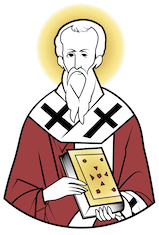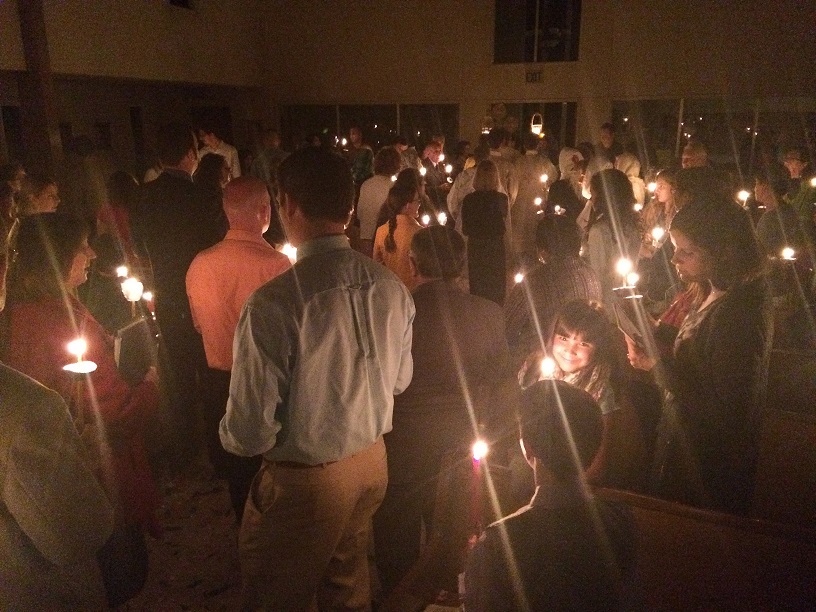What does the word ‘orthodox’ mean? Are you Jewish?
Are non-Orthodox Visitors Welcome?
Yes! Our community includes many converts to the Orthodox Church, and we are very comfortable with newcomers, inquirers and visitors. The Orthodox Church includes faithful from all racial, age, ethnic, and economic backgrounds. Every sincere lover or seeker of Christ, or non-Christian inquirer is welcome. We can probably anticipate many of your questions about the Orthodox Christian faith. So don’t be afraid to ask questions about what we do and why (at the appropriate time, of course!). Our bookstore also has books and pamphlets that can help answer a variety of questions. Subjects in our bookstore include Christian church history, theology, catechism, Orthodox spirituality, inspiration, prayer, the lives of the Saints, and stories about others who have journeyed to the Orthodox Faith.
New visitors will find there are many new things to experience in a Holy Orthodox Church service. Feel free to go at your own pace, ask any questions you want, and know you are most welcome to “come and see”.
Is childcare provided?
Each parent is responsible to take care of their child. We encourage children to be present in Church for the services. This participation is part of a child’s spiritual formation. As a matter of courtesy and respect for the other worshippers, if your baby or child gets fussy, talkative, or has a melt-down, please take him or her out of the nave until he or she is ready to return quietly.
Standing or sitting?
The traditional posture for prayer and worship in the Orthodox Church is to stand before the King of the universe! In the Orthodox “old countries” there are typically no pews in the churches. Chairs or benches on the side walls are usually reserved for the elderly and infirm. In North America however we tend to build our churches with pews or chairs. So you are free to sit. However, it is appropriate to stand during the Gospel reading, the Little and Great Entrances, the distribution of Holy Communion, when the priest gives a blessing, and at the Dismissal. Just follow the congregation.
Why are there Greek Orthodox and Russian Orthodox?
It’s the same religion, just different administrative organizations and different languages. In most countries with an Orthodox presence, there is a single jurisdiction for the entire nation; such as the Orthodox Church of Japan, or the Orthodox Church of Finland. As a nation of immigrants, the situation in the United States is a little different. Each ethnic group has established their own parishes in order to serve the immigrant communities. There is a great deal of interaction and cooperation between the various jurisdictions, but as of yet, there is no Orthodox Church of the United States. Saint James parish is part of the Antioch archdiocese, which was established by Christian Arabs who immigrated from the Middle East.
Can non-Orthodox receive the Holy Eucharist/Communion?
Orthodox priests may only serve the Holy Eucharist to baptized members in good standing of the canonical Orthodox Church, who have recently confessed, and fasted before partaking of the Holy Eucharist. This is the ancient tradition of the Holy Church for nearly 2,000 years of its history. The Orthodox Church understands the Holy Eucharist as a mystery of the real presence of Christ in the Eucharist, not simply as a memorial, or merely in a spiritual sense, as many other non-Orthodox Christians do. Rather than trying to accommodate to often varying “interpretations” or revisions of this and other doctrines of the ancient faith, we simply ask that you respect the ancient, apostolic tradition and join us in receiving the Fellowship bread at the veneration of the cross, at the end of the Divine Liturgy. Partaking of the Fellowship bread is an expression of friendship – is not the Eucharist.
Are Orthodox Christians saved?
Our salvation is a free gift of God, accepted by faith in Jesus Christ.
Faithful Orthodox Christians:
⦁ Confess with their mouth that Jesus is Lord, and believe that God has raised Him from the dead (Romans 10:9).
⦁ Are baptized in the name of the Father and the Son and Holy Spirit (Mark 28:19).
⦁ Receive the holy and precious Body and Blood of our Lord and God and Savior Jesus Christ (John 6:53).
What if I have further questions?
Whether you are a guest, an inquirer, or a visitor from another parish, we are pleased you are here. The purpose of our website is to introduce you to our parish community and to provide you with a brief overview of the Orthodox Church and faith. Our clergy are also personally available to answer any questions you may have about Orthodox Christianity, or about your spiritual experience or personal faith journey.
Feel free to contact us, or talk to one of our faithful, or one of our clergy after the service or during coffee hour following Sunday Divine Liturgy. If your need is of a pastoral nature, you can call the office or leave an email request to schedule an appointment to meet with Father Thomas.


